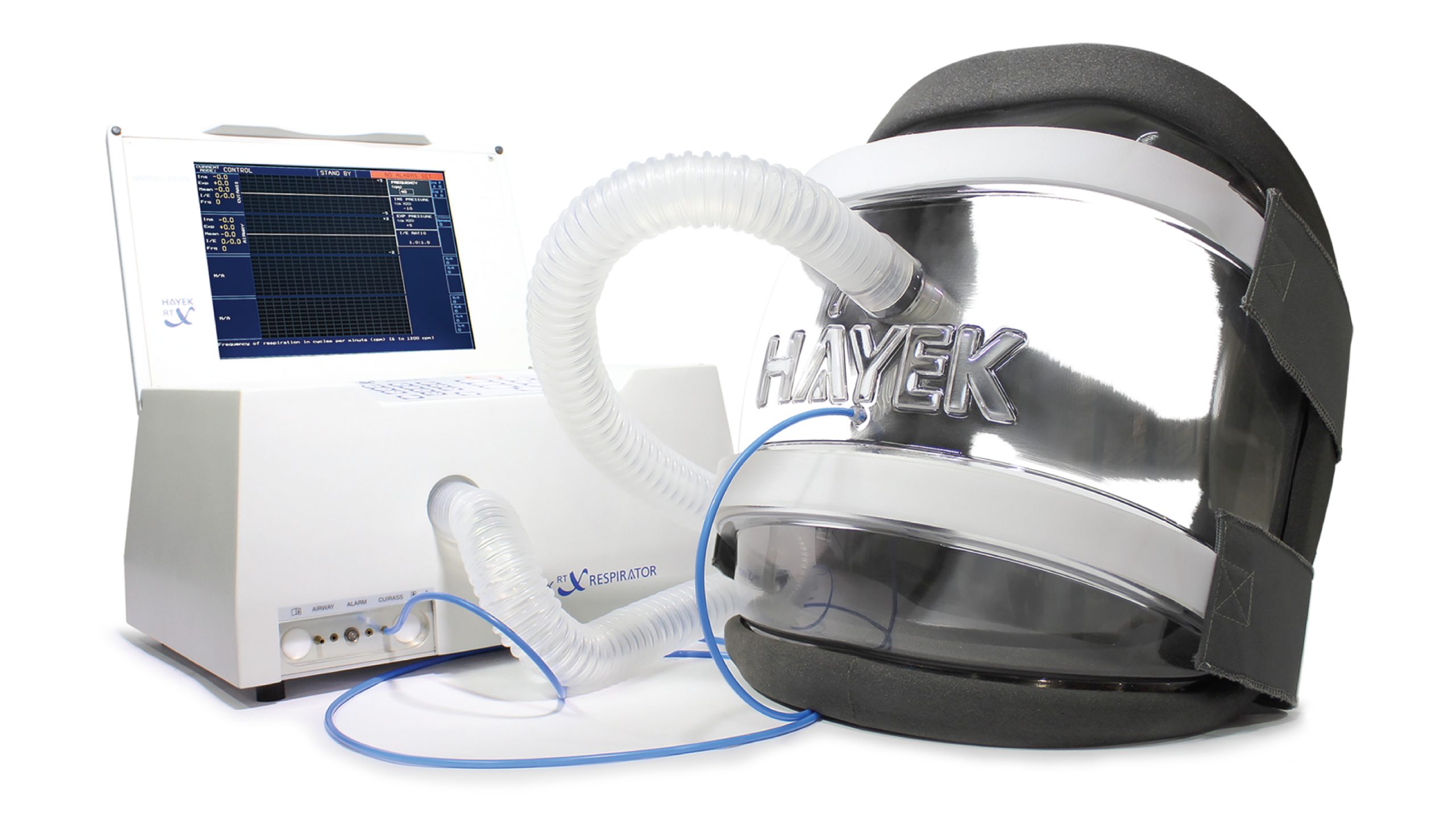Most patients require hospitalization and about 30% require ventilatory assistance.
BCV can be effectively used in Guillain-Barre patients for assisting with ventilation or providing full ventilation, thus replacing intubation and conventional mechanical ventilation, whilst relieving muscle fatigue.


